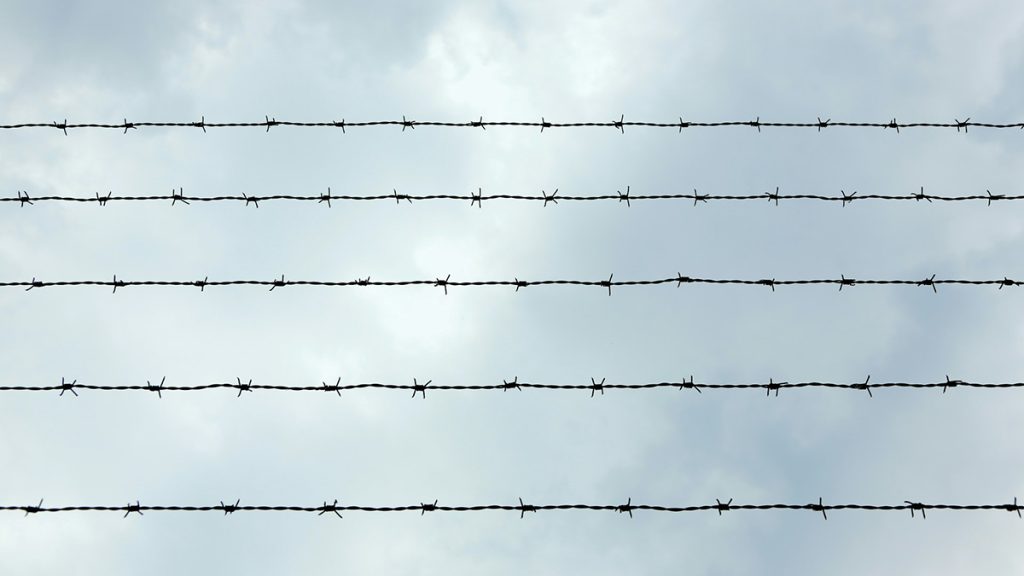
Photo: Robert Klank | Unsplash
How to work with local incarcerated writers
Communicating, editing, privacy and pay
Nearly half of all American adults have had an immediate family member incarcerated. On any given day, nearly 2 million people, disproportionately Black and brown people, are detained in U.S. jails and prisons. If these individuals all lived in the same geographic area, they would form one of America’s top five largest cities. Yet too often their voices are missing from coverage of public safety and the criminal justice media landscape.
It’s imperative that local and national outlets better center the needs and views of these constituents, and one of the best ways to do so is working with freelance incarcerated writers.
At The Appeal, working with incarcerated writers is an essential way we center the voices of the people directly impacted by the issues we cover, especially at the local level. Last year, we welcomed Christopher Blackwell, a writer incarcerated in Washington state, as our first contributing editor and we’ve worked with nearly two dozen more across the country. In 2023, 27% of the freelance writers we worked with were currently or formerly incarcerated.
The Appeal is unique in how we approach our work with people who are or were incarcerated. Unlike other outlets that often publish one-off pieces that are primarily reflections on life in prison, we invest long-term in our writers’ careers. Through professional development, including mentorship, frequent publication opportunities, and the chance to write reported and investigative pieces, we support their career growth, ultimately building sustained narrative power that people most impacted by incarceration and policing can use to make change and deliver impact.
We know the challenges to working with incarcerated writers can feel daunting, so here are some simple steps to get you started.
Tap into the community
The best people to talk to about working with incarcerated writers are the ones already doing it. Local advocacy groups, prison writing programs, and university programs may already know talented writers they can connect you with. Make sure to search your own outlet’s archives—your colleagues may have even done stories on prison writing programs in the past.
Within the journalism community, there are also newsrooms doing incredible work to support newsrooms that want to work with incarcerated writers. Scalawag Magazine has an entire Press in Prison landing page, where you can find a guidebook, other resources, and stories they’ve published by incarcerated writers. Empowerment Avenue is a fantastic organization co-founded by then-incarcerated writer Rahsaan Thomas that harnesses outside volunteers to support 25 to 30 writers across the country and help them get published and paid for their work.
Steal our writers!
We love seeing the work of our incarcerated writers published in more outlets—as a small newsroom, The Appeal can’t possibly publish all the amazing journalism our writers produce. This is a core reason we do what we do: to help our incarcerated writers develop thriving careers as journalists.
Like most freelance writers, many incarcerated writers want to be sought out by and build relationships with editors, so looking at existing published writers is a great place to start. Here are some good lists:
- The Appeal’s published writers
- Empowerment Avenue writers
- And writers for outlets including Prism, Scalawag, and Prison Journalism Project
Learn the system
The criminal legal system is opaque, confusing, arbitrary, and fragmented. Working with incarcerated writers will require a commitment to building a (highly valuable!) skillset and navigating complex systems. Here are some key things to know:
Reaching out
Say you’ve identified a writer you’d like to contact, how do you do that? Start with your state Department of Corrections website and use their lookup tool. You will usually need to know the writer’s full name and facility name (the name of the prison). This will generate an ID number that you will use a lot, so keep it handy.
Communicating
There are a myriad of ways—and strict rules—to communicate with people inside, and these are different at every facility.
The main tools you’ll use are:
- E-messages: While written digitally and similar in spirit to email they are not the same. E-messages can cost nearly as much as a postage stamp (and are character-limited, so longer messages cost more) and can take days to arrive. Occasionally, they may never arrive so it’s best to over-communicate.
- We recommend setting up a newsroom account on Securus and GettingOut/ ConnectNetwork.
- Next, add writers to your contacts using their ID number and facility name. Once you do this, writers will be able to contact your editors directly.
- Snail mail: Every facility has different rules and may reject your mail if it’s not compliant, so make sure to ask your writer about any restrictions. Be sure to add your writer’s ID number to the mailing address as well.
- This resource is a good place to start
- Phone calls: This is best for talking through complicated edits or fact checks, or if a story has hit a roadblock. But access to phones, particularly at convenient times, is never guaranteed and writers will need to be the ones to call you.
- We recommend setting up a prepaid account with Securus and ConnectNetwork AdvancePay, so writers can call you when they have phone access.
Read more: How Prison Writers Struggle to be Heard by Christopher Blackwell for The Appeal
Privacy
It’s critical to remember that no communication you have with an incarcerated person is completely private. All mail and e-messages are monitored and screened, while phone calls can be recorded. If you want to speak about sensitive information, anonymous sources, or other information that could put your writer or sources at risk, that is best to do in person, where possible, or over the phone.
Better yet, spend a bit of time creating a short policy about how you communicate with incarcerated people and sources.
Here’s an excerpt from The Appeal’s Harm Minimization Guidelines on communicating with incarcerated people:
Be cognizant of prison surveillance. Phone calls, e-messages, and mail in/out of prisons are all surveilled, so to prevent harm, journalists should take steps to avoid getting sources to share information that could lead to retribution from officials or further criminalization that could impact their sentence, including reminding sources that others read their communications.
Adjust your processes
Editorial
Just as you’d adjust your processes to accommodate different needs and resources for staff members and freelancers in the community, you’ll need to do the same to work with incarcerated freelance writers.
Many incarcerated writers—though not all—have access to tablets, but these possess incredibly rudimentary word processors. Here’s some tips on how to navigate the editing process:
- Once you’ve received a draft, you will need to edit in a way that the writer can follow. They won’t have access to any formatting (nope, not even bold or italics), tracked changes, or comments. There’s not even a copy-and-paste function on many tablets. So you can carefully explain edits and fact-checking queries over the phone or develop simple markup conventions that work for you. [Brackets can be a useful way to ask questions or suggest changes in copy.]
- Be more involved: incarcerated writers don’t have access to the internet. That means they cannot quickly Google a statistic, read past news reports, or look up academic papers. So we encourage editors to be more hands-on by doing some of this legwork and then providing information via e-messages or snail mail to your writers.
- Be open to co-reporting: If a story needs to be published quickly, or will require immense research/internet use, rather than deciding to forgo working with an incarcerated writer, consider sharing the byline.
Communication
It may seem a little strange at first, but involving a third person in the editing process can be helpful.
Some incarcerated writers will work with outside volunteers or loved ones who can send traditional emails or messages to editors on their behalf.
Even if this isn’t the case, we recommend getting contact details for an incarcerated person’s loved one. On more than one occasion, we’ve had a writer suddenly stop responding. By speaking to their loved one, we were able to learn that our writer had been moved to COVID isolation, the prison was on lockdown, or our writer had been moved ahead of a legal proceeding.
These sorts of delays are par for the course, so keep notions of deadlines very flexible!
Revisit your style guide
Since 2018, The Appeal has used person-first language when talking about incarcerated people and, when working with incarcerated writers, we follow their lead when it comes to preferred terminology. If you use language that feels exclusionary to your writers, you may undermine your entire effort by causing both hurt and harm.
Here’s The Appeal’s policy and some examples:
People-first language. We identify people as people first, never by their carceral status or a crime they may have committed. This includes:
- Use of language that is empathetic but fact-based
- Treating people as the full, complex human beings they, and we all, are
- Checking ourselves on whether a desire to use certain phrases or processes is a futile attempt to uphold a false notion of ‘objectivity’.
Some examples from The Appeal’s Style Guide:
- defendant(s): In an effort to humanize those involved in the legal system, replace this with “people” or “person” or other alternative (he/she/they) whenever possible
- felon: avoid as a descriptor when possible; say person convicted of a felony (for “former felons,” say people who served felony sentences)
- inmate: avoid this word, unless in a quote; use prisoner or person instead
- juveniles: avoid the word as a noun, use children/young people instead, and don’t name them if they are accused of a crime
- offender: permitted in phrases like “sex offender,” but not ex-offender to refer to people who have served their sentences or offender to refer to people in prison
- prisoners or people in prison: not inmates
We make a constant effort to update our style guide and practices in response to changing norms and requests from impacted people, particularly when it comes to preventing stereotypes. If your policy is to always mention the crime someone was convicted for, ask why. The question we always come back to is, “Is this relevant to this exact story?”
See this excerpt from The Appeal’s Harm Minimization Guidelines:
Include only relevant information. It is a judgment call on when to include information on a person’s criminal record and/or charges they’re facing. If it seems important to include, publish only relevant information (ie. if we’re telling a story about a potential wrongful conviction or police abuse of someone accused of murder, their drunk driving conviction from 10 years earlier is not relevant and shouldn’t be included).
- Never include lurid/gory details.
If mentioning someone’s crime is non-negotiable for your outlet, do not just include it without discussing it with the writer first as they may, like any writer can, choose to withdraw their work.
Commission more than personal essays
First-person essays about life inside are vital to the public’s understanding of the incarcerated community’s experiences. But, we urge you to keep expanding your work with incarcerated writers beyond narrative pieces. There are many talented writers in your local prisons who have not just remarkable skills but access to sources your reporters will simply never have. So work with them to investigate and report out critical local stories.
Outstanding reporting from our local incarcerated writers has been recognized as finalists by the Online Journalism Awards for Excellence in Social Justice Reporting and last year our Contributing Editor Christopher Blackwell won the Nonprofit News Awards for Breaking Barriers.
Pay!
Paying incarcerated writers is complicated and scary for many outlets. States have different regulations around how and when you can pay people who are incarcerated, and methods of payment are not always straightforward. At The Appeal, we are committed to paying our writers for their work. If you’d like to chat more about this, please reach out to us — we’d love to talk with you.


Comments